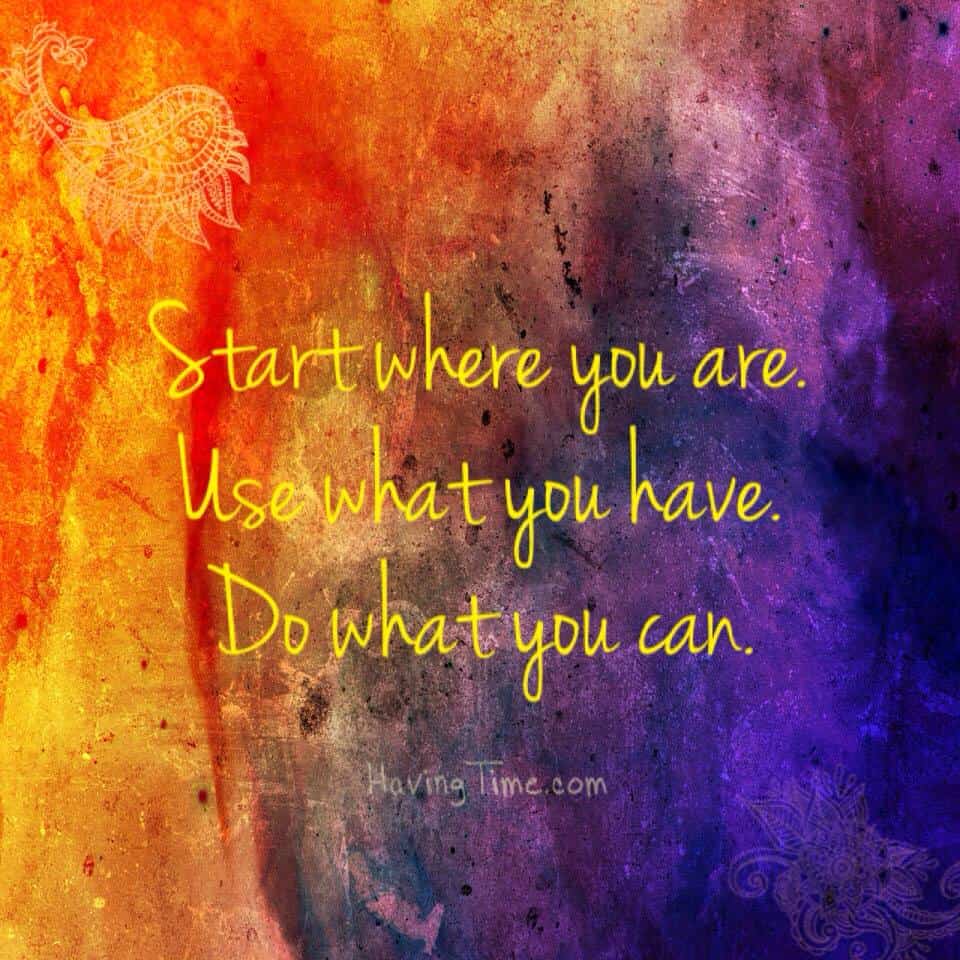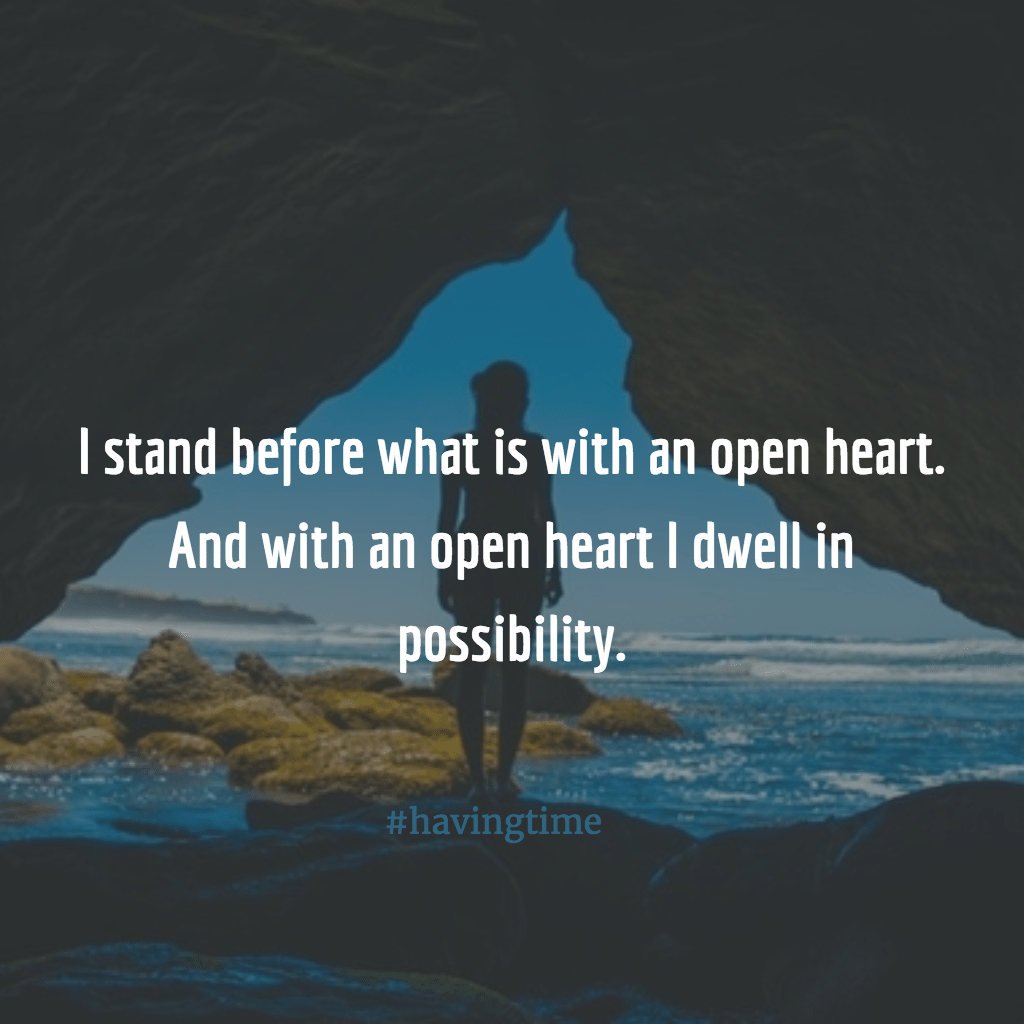
How to Make Your Life Better Without Ruining It
If you’ve opened up this article, I’m going to hazard a guess that you’re stuck in a rut of thinking negative thoughts and getting negative results. Maybe not terrible results – but not the results you want. And maybe you’re not totally down on yourself – but you find yourself being critical of the person in the mirror more than you’d like. Does this sound like you?
You’re doing okay in your career, and you’d like to go for a promotion, but you don’t think you’d get it.
You’ve lost some of that weight you wanted to lose, but you’re still not comfortable with how you look, and you don’t feel attractive.
Your friends appreciate you, but you feel like you’re putting on an act to be the person they want you to be, and if you stopped doing that they’d disappear.
You go to all the family events, but you always feel awkward and like you have to make an effort to fit in.
If most or all of this sounds familiar, it’s probably not your colleagues, partners, friends or family that have the problem. Some of us have just learned to be too hard on ourselves.
Yes, I do understand how frustrating it is to be in that position – because I’ve been there myself. And I can tell you, in all honesty, that until you stop letting yourself think in that way, it’s not going to get any better. Because nothing the people around you do is going to change the inner narrative that’s always telling you something bad is going to happen, making you feel uncomfortable, and ruining your confidence.
The good news? That inner voice – you own it. You’re the only one that can change it.
The bad news? That means nobody can do this for you. But that means you’re the one in control.
Why You Should Stop Being Self-Critical
So where to start with that? Usually, it’s by working out where the voice came from in the first place.
What we’re talking about here is something that psychology would call the autobiographical narrative. It is what is says it is – the little voice in your head that always has to have an opinion on everything. And it comes from everything you’ve experienced in your life – which means that every criticism, every nasty comment, every put down (or at least all of those that you didn’t process and dismiss) got in there. And because they’re still in there, they get to have input into a whole lot of important things: your self-concept, your emotional responses, your confidence, your choices, your relationships – in fact, your whole future.
Can you change that? Totally. But not without understanding where the voices came from, how they shaped your current self-concept and belief systems, and how you have the ability to challenge them.
I’ve now got a successful consultancy business, I’m just starting out on a Ph.D., I have great relationships with friends and family, and I lead a really fulfilling life. Things weren’t always that way. At 25, I’d lost nearly every relationship in my life, I had no job, no business, and no home. All I owned was my car, a bag of clothes and a bag of books. And to be clear, both of these situations – the good and the bad – were a direct result of what my autobiographical narrative way saying.
You see, this isn’t your typical rags to riches story. I had a really good start in life – a nice home, a good education, excellent grades, a supportive family. And I managed to throw that all away – and to leave myself, at the age of 25, in the position of needing to pick up the pieces and get myself back to where I should have been, nearly a decade before.

Because having that stuff wasn’t enough. I was the introvert in a world of extroverts; a stepchild in a family of siblings; a high IQ kid in an everyday school; a bookworm nerd with sporty relatives. And my autobiographical narrative said, from every angle: outsider, an outsider, the outsider.
So I got angry, and I rebelled, and I created myself in a host of new images. Teenagers do this anyway; but when you’re getting taught to hate everything about who you are, it can go horribly wrong. Like I said, it took me nine years to work out who I really was, and to embrace that: nine years during which I chose bad relationships and partners, threw away careers and businesses, self-sabotaged at every possible opportunity, had my own brief experience with anorexia, and alienated people I should have been building bridges with.
Your story will no doubt be different, but the cause may be the same. And if your critical, condescending, uncomfortable autobiographical narrative is holding you back too, there is a solution.
Find yourself. Accept yourself. Learn to love yourself. And if other people can’t accept you for who you are, let them go. They obviously have their own problems to deal with.
So what if you aren’t perfect? Neither is anyone else.
So what if you’re different? It would be a very boring world if we were all the same.
You can work on the things that you want to improve about yourself, without being super-critical about everything that’s “wrong with you”. You can make the choice to eat healthier, exercise more, sign up for a course of study, learn to practice a soft skill, or resolve to build better relationships, without using it as an excuse to hate on the person you are now. You are where you are. You have the option to be something else.

You can learn to embrace your differences, even to celebrate them. The people worth having in your life will love you anyway. The people not worth having in your life will start to slip away, and you will learn to let them go. And in the gap they leave, you’ll find new people who, strangely enough, are more like you.
It doesn’t take a great mindset shift to start you out on that path. Just one little change. You need to tell your autographical narrative, just for once, to be quiet. And then you need to listen to the real you, that’s finally getting the chance to freely express itself. Who are you? What do you value? Who could you be, if you stopped letting the voice put you down all the time?
Make that change. You won’t regret it.


